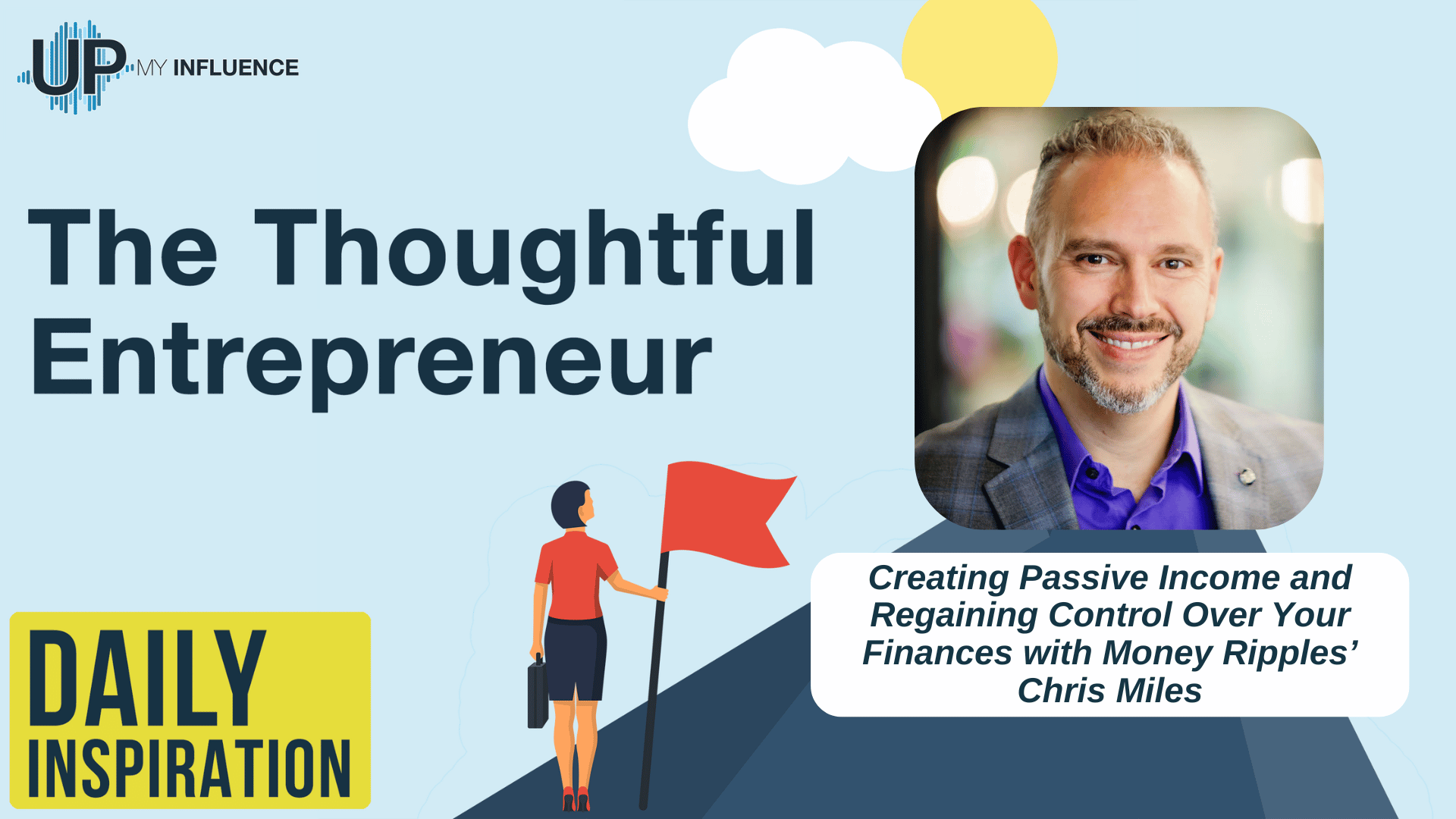THE THOUGHTFUL ENTREPRENEUR PODCAST
 Mastering Your Money: Proven Strategies for Entrepreneurs to Create Cash Flow and Passive Income
Mastering Your Money: Proven Strategies for Entrepreneurs to Create Cash Flow and Passive Income
In a recent podcast episode, host Josh engages with Chris Miles, the founder of Money Ripples, to discuss effective financial strategies for business owners. The conversation centers on how entrepreneurs can achieve time freedom and create passive income, moving away from traditional investment methods that often do not yield the desired results. This blog post will break down the key insights and actionable advice shared by Chris Miles, providing a comprehensive guide for entrepreneurs looking to enhance their financial strategies.
Chris Miles is dedicated to helping entrepreneurs and business owners regain control over their finances. His tagline, “Create freedom and prosperity today,” reflects his mission to enable individuals to work because they want to, not because they have to. He acknowledges that many entrepreneurs find themselves trapped in a cycle of working excessively hard, often mirroring the rat race they sought to escape. Josh sets the stage by highlighting the typical financial struggles faced by business owners, especially those who have been in business for five or more years. Many entrepreneurs deal with cash flow fluctuations, business debt, and the pressure of maintaining profitability. Chris emphasizes that the key to overcoming these challenges lies in adopting a common-sense approach to money management.
Chris argues that many financial advisors promote a mindset that locks money away in retirement accounts and encourages debt repayment, which can hinder entrepreneurs' financial growth. He advocates for a different approach: freeing up cash and investing it wisely. He points out that only 25% of entrepreneurs have enough cash reserves to cover two months of operating expenses, which is a critical oversight. Chris emphasizes the importance of creating cash flow and passive income streams, suggesting that true passive income comes from investments that generate cash flow without the investor needing to be actively involved. He shares a success story of a client who transformed a million-dollar investment from a traditional financial advisor, which would have yielded only $30,000 a year, into a diversified portfolio that generated between $100,000 and $130,000 annually. This was achieved by investing in real estate, syndications, and other cash-flowing assets, demonstrating the potential for higher returns through strategic investments.
About Chris Miles:
Chris Miles, the Cash Flow Expert and Anti-Financial Advisor, is a leading authority teaching entrepreneurs and professionals how to get their money working for them TODAY! He’s an author, podcast host of the Money Ripples Podcast, has been featured in US News, CNN Money, Entrepreneurs on Fire, BiggerPockets, and has a proven reputation with his company, Money Ripples (https://moneyripples.com/) getting his clients fast, financial results. In fact, his personal clients have increased their cash flow by $300+ Million in the last 14 years!
About Money Ripples:
Money Ripples is dedicated to helping individuals improve their cash flow, enabling them to work because they want to, not because they have to. Their financial consulting services, coupled with an innovative infinite banking strategy, aim to guide clients toward financial freedom. Rather than relying on traditional retirement accounts like IRAs or 401(k)s, clients are encouraged to embark on a passive investing journey with the support of Money Ripples. Together, they strive to create a path to freedom and prosperity.
Apply to be a Guest on The Thoughtful Entrepreneur: https://go.upmyinfluence.com/podcast-guest
Links Mentioned in this Episode:
Want to learn more? Check out GreenBanana SEO website at
Check out GreenBanana SEO on LinkedIn at
https://www.linkedin.com/company/money-ripples/
Check out Chris Miles on LinkedIn at
https://www.linkedin.com/in/chriscmiles
Don’t forget to subscribe to The Thoughtful Entrepreneur and thank you for listening. Tune in next time!
More from UpMyInfluence:
We are actively booking guests for our The Thoughtful Entrepreneur. Schedule HERE.
Are you a 6-figure consultant? I’ve got high-level intros for you. Learn more here.
What is your #1 Lead Generation BLOCKER? Take my free quiz here.
Want to learn more about all the podcasts managed by UpMyInfluence? Opt in here.


